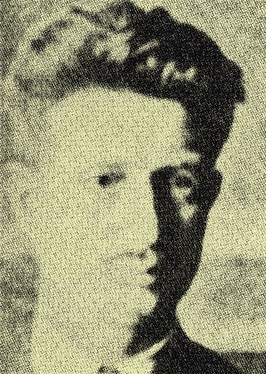Hugo Urbahns
Hugo Urbahns (1890–1946) was a German politician and revolutionary known for his involvement in the Communist Party of Germany (KPD) and later the Communist Workers' Party of Germany (KAPD). He played a significant role in the left-wing movements in Germany during the early 20th century.
Early Life[edit | edit source]
Hugo Urbahns was born in 1890 in Germany. Little is known about his early life and education. He became politically active at a young age, joining the Social Democratic Party of Germany (SPD) before World War I.
Political Career[edit | edit source]
During the German Revolution of 1918–1919, Urbahns was an active participant in the revolutionary activities that led to the abdication of Kaiser Wilhelm II and the establishment of the Weimar Republic. He was a member of the Spartacus League, which later became the Communist Party of Germany (KPD).
Communist Party of Germany (KPD)[edit | edit source]
Urbahns was a prominent member of the KPD, advocating for a revolutionary overthrow of the capitalist system. He was involved in various uprisings and strikes, including the March Action of 1921. However, his radical views often put him at odds with the party leadership.
Communist Workers' Party of Germany (KAPD)[edit | edit source]
In 1920, due to ideological differences, Urbahns and other left-wing radicals split from the KPD to form the Communist Workers' Party of Germany (KAPD). The KAPD was more radical than the KPD, advocating for workers' councils and direct action. Urbahns was a leading figure in the KAPD, contributing to its theoretical and practical activities.
Later Years and Death[edit | edit source]
After the rise of the Nazi Party in 1933, Urbahns faced persecution like many other left-wing activists. He went into exile and continued his political activities from abroad. Hugo Urbahns died in 1946.
Legacy[edit | edit source]
Hugo Urbahns is remembered as a significant figure in the early 20th-century German left-wing movements. His contributions to the revolutionary cause and his role in the KPD and KAPD highlight the complexities and divisions within the German communist movement during that period.
See Also[edit | edit source]
- Communist Party of Germany
- Communist Workers' Party of Germany
- German Revolution of 1918–1919
- Weimar Republic
- Spartacus League
- March Action
References[edit | edit source]
External Links[edit | edit source]
Search WikiMD
Ad.Tired of being Overweight? Try W8MD's physician weight loss program.
Semaglutide (Ozempic / Wegovy and Tirzepatide (Mounjaro / Zepbound) available.
Advertise on WikiMD
|
WikiMD's Wellness Encyclopedia |
| Let Food Be Thy Medicine Medicine Thy Food - Hippocrates |
Translate this page: - East Asian
中文,
日本,
한국어,
South Asian
हिन्दी,
தமிழ்,
తెలుగు,
Urdu,
ಕನ್ನಡ,
Southeast Asian
Indonesian,
Vietnamese,
Thai,
မြန်မာဘာသာ,
বাংলা
European
español,
Deutsch,
français,
Greek,
português do Brasil,
polski,
română,
русский,
Nederlands,
norsk,
svenska,
suomi,
Italian
Middle Eastern & African
عربى,
Turkish,
Persian,
Hebrew,
Afrikaans,
isiZulu,
Kiswahili,
Other
Bulgarian,
Hungarian,
Czech,
Swedish,
മലയാളം,
मराठी,
ਪੰਜਾਬੀ,
ગુજરાતી,
Portuguese,
Ukrainian
Medical Disclaimer: WikiMD is not a substitute for professional medical advice. The information on WikiMD is provided as an information resource only, may be incorrect, outdated or misleading, and is not to be used or relied on for any diagnostic or treatment purposes. Please consult your health care provider before making any healthcare decisions or for guidance about a specific medical condition. WikiMD expressly disclaims responsibility, and shall have no liability, for any damages, loss, injury, or liability whatsoever suffered as a result of your reliance on the information contained in this site. By visiting this site you agree to the foregoing terms and conditions, which may from time to time be changed or supplemented by WikiMD. If you do not agree to the foregoing terms and conditions, you should not enter or use this site. See full disclaimer.
Credits:Most images are courtesy of Wikimedia commons, and templates Wikipedia, licensed under CC BY SA or similar.
Contributors: Prab R. Tumpati, MD

